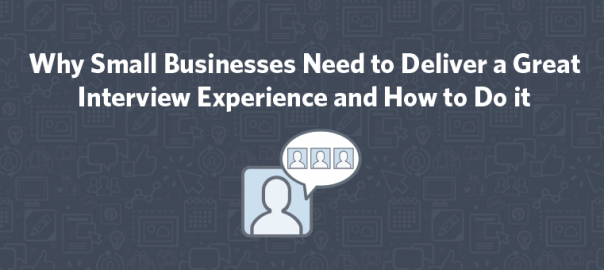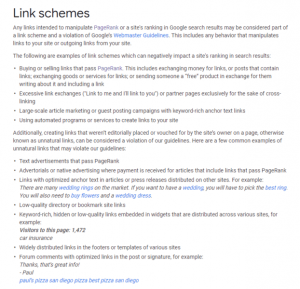
No matter what your customer base or cause is, you know the importance of delivering an exceptional experience.
Whether you’re helping a new customer pick out the perfect gift from your store or adding a thank you video to an email newsletter, you’re committed to making a great impression both online and off.
What does this have to do with the interview experience you’re providing?
Hiring new employees is not something small business owners should take lightly. Attracting strong candidates that fit in with your company culture and add value to your team is no easy task.
And while you may only think of interviewing as one of the first steps of hiring, in reality the interview experience you provide has the power to affect everything from your business’s reputation to customer satisfaction.
Let’s take a closer look at why it’s so important to provide a positive interview experience and some advice for how to do it.
Why is a good interview process important?
1. It could help make your recruiting process easier….Or harder.
Similar to how you get customers through word-of-mouth (both in the literal sense and through online rating sites like Yelp), the same goes for attracting potential employees to work for your company.
If you don’t have the time or money to invest in a robust recruiting strategy, your customers, employees, and interviewees are your biggest advocates and will help or hurt your ability to bring in great talent.
Consider this: is your interview process getting candidates excited about working for you or are they vowing to revoke their patronage? These experiences are the ones that will be shared with their family and friends. Some may even take it to the masses through career-focused sites like Glassdoor. Creating a great candidate experience can help secure a steady flow of quality people.
2. It can bleed into your actual customer-base.
There’s a good chance the candidate interviewing for your job has interacted with your business before, or at least has a good understanding of the products or services you provide.
Regardless of whether you think a candidate is a good fit as an employee, it’s important that you protect that connection. Make sure you’re treating each candidate thoughtfully during the interview and in any follow-up communication.
3. You’ll give your future employees a great first impression.
Employee engagement starts with a great interview experience. If your candidate has a positive view of you during their interview, they will be invested and ready to hit the ground running if you extend an offer to them.
This will feed into your employee onboarding experience and can boost the morale of the team. If your new employee is excited to join your team they’ll be eager to add value to your team right away and will ultimately stay with you longer.
How do you create a good interview experience?
1. Know the do’s and don’ts of interview questions.
First off, you need to make sure all the interview questions you ask are legal. While you might find some questions about nationality or marital status to be simply conversational, the reality is that there are laws that prohibit you to ask personal information that is not directly related to the job.
There are many resources out there to let you know what you can and can’t ask, so to avoid any problems make sure you’re educating yourself as well as anyone else who interviews candidates.
Secondly, you want to make sure you’re asking questions to help you identify whether or not the candidate has the right skills (both technical and soft) to perform the job well. Think of some of the most important skills they’d need and the situations they may encounter in their day-to-day activities.
From there, develop out behavioral and situational questions that can get them talking about their own experiences in depth. That can help you bridge the gap between your needs and their capabilities.
Tip: Create a cheat sheet or interview questionnaire to keep you compliant and on track during your interviews.
2. Provide feedback and a timely follow-up.
What you do after an interview is almost just as important as how you conduct the interview. All candidates hate feeling like their resume has gone into a black hole. The same could be said when it comes to interview feedback and follow up.
Would you give your customers the silent treatment, keep them in the dark, or keep them waiting? Of course not. This mentality should also be applied to candidates as well.
Be transparent and let candidates know how long you expect to keep the job open, and when they should expect to hear back from you after their interview. Even if you don’t have an answer at the time you initially set, give them a courtesy call to let them know you haven’t forgotten them and provide a new timeframe for when you’ll have a final decision.
Just remember, though, it’s a candidate market these days. Don’t expect them to be sitting around if you take too long.
3. Use your marketing skills to showcase your employment brand.
During an interview, your candidates are interviewing you just as much as you are interviewing them, so be prepared to sell yourself. Take your consumer branding skills and apply them to your recruitment process. What makes your company a great place to work? What are your differentiators? What’s the culture? What’s the team like? How’s your leadership style?
Be prepared to give a full picture of your company as an employer. Making it easy for people to envision working with you is an essential part of not only landing a new hire, but also making them an engaged hire from day one.
Where can you start today?
Start identifying what your employment brand truly is. Assess it, ask your current employees questions, and think about what you can offer an employee. This can be a great starting point to understanding what makes you the employer of choice.
(187)
Report Post








